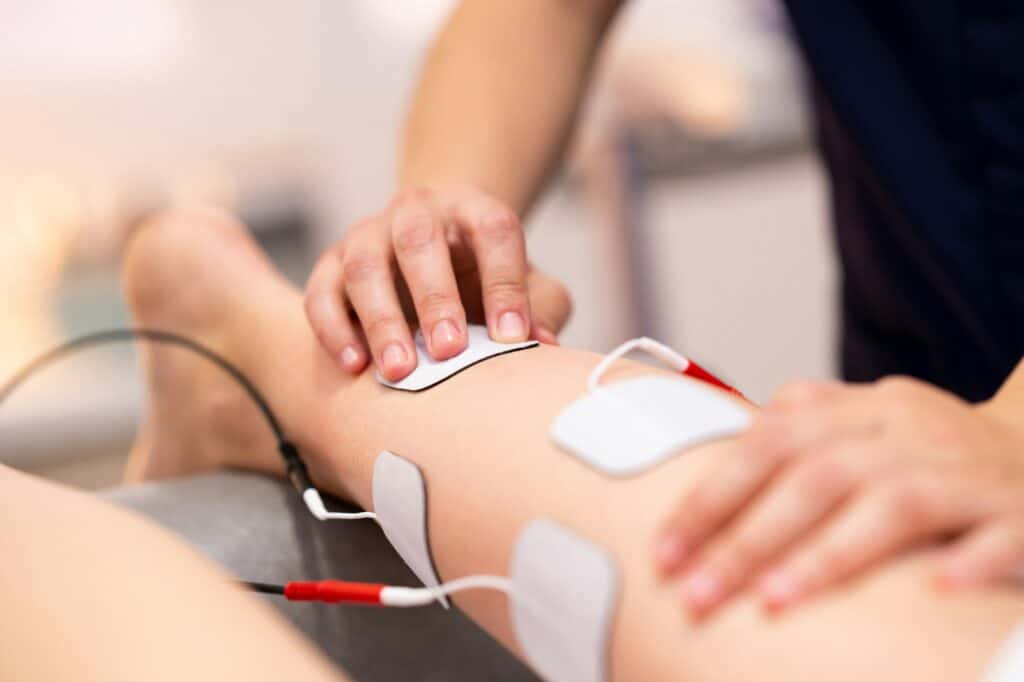Pain – an unwelcome companion that often disrupts our daily lives, hindering productivity and dampening spirits. Whether it’s a persistent ache or a sudden jolt, finding effective pain management techniques is paramount for quality living. In this blog post, we delve into the realm of pain management techniques, exploring the top strategies individuals can employ to alleviate discomfort and regain control of their lives. From conventional methods to innovative approaches, let’s uncover the pathways to relief.
Understanding the Complexity of Pain
Pain is not merely a sensation but a complex interplay of biological, psychological, and environmental factors. It’s not always easy to pinpoint its origin or severity, as pain perception varies greatly from person to person. Factors such as genetics, past experiences, and emotional state can all influence how we perceive and cope with pain. Understanding this complexity is crucial in developing effective pain management strategies that address the individual’s unique needs and circumstances.
The Importance of Effective Pain Management
Effective pain management goes beyond mere symptom relief; it significantly impacts one’s quality of life. Unmanaged pain can lead to physical limitations, emotional distress, and decreased productivity. It can also disrupt sleep patterns, exacerbate existing health conditions, and contribute to long-term disability. By prioritizing effective pain management, individuals can regain control over their lives, improve their overall well-being, and enhance their ability to engage in daily activities.
Exploring Conventional Pain Relief Methods
Conventional pain relief methods typically involve pharmaceutical interventions, such as over-the-counter or prescription medications. These medications work by targeting pain receptors in the body, blocking or reducing the transmission of pain signals to the brain. Common types of pain medications include nonsteroidal anti-inflammatory drugs (NSAIDs), acetaminophen, opioids, and muscle relaxants.
While effective for short-term pain relief, these medications may carry risks of side effects or dependency if not used appropriately. It’s essential to consult with a healthcare professional before starting any medication regimen to ensure safety and efficacy.
Medications for Pain Management: What You Need to Know
Pain medication is essential for managing discomfort and providing relief from mild to severe conditions. Understanding different classes of pain medications, their mechanisms of action, and potential side effects is crucial. Nonsteroidal anti-inflammatory drugs (NSAIDs) are used to reduce inflammation and relieve pain from conditions like arthritis or musculoskeletal injuries.
Acetaminophen is effective for mild to moderate pain and fever reduction. Opioids are powerful pain relievers but carry risks of tolerance, dependence, and addiction. Muscle relaxants can alleviate muscle spasms and associated pain.
Physical Therapy: A Key Component of Pain Management
Physical therapy plays a crucial role in pain management by addressing underlying musculoskeletal issues, improving mobility, and promoting recovery. Through targeted exercises, manual techniques, and modalities such as heat or cold therapy, physical therapists can help reduce pain, restore function, and prevent future injuries.
Physical therapy is particularly beneficial for individuals recovering from surgery, sports injuries, or chronic conditions such as back pain or arthritis. By focusing on strengthening muscles, improving flexibility, and correcting movement patterns, physical therapy empowers individuals to regain control over their bodies and lead active, fulfilling lives.
Mind-Body Techniques: Harnessing the Power of the Mind to Combat Pain
The mind-body connection plays a significant role in how we perceive and experience pain. Mind-body techniques leverage this connection to promote relaxation, reduce stress, and alleviate pain. Techniques such as meditation, deep breathing exercises, guided imagery, and progressive muscle relaxation can help individuals manage pain more effectively by shifting their focus away from discomfort and fostering a sense of calm and well-being.
Mind-body interventions are often used in conjunction with other pain management strategies to enhance their effectiveness and improve overall quality of life. By incorporating these techniques into their daily routine, individuals can cultivate resilience, improve coping skills, and reduce the impact of pain on their lives.
The Role of Exercise in Pain Management
Exercise is a powerful tool in pain management, offering numerous physical and psychological benefits. Regular physical activity helps strengthen muscles, improve flexibility, and promote circulation, all of which can reduce pain and improve function. Exercise also releases endorphins, the body’s natural painkillers, which can elevate mood and reduce stress.
While it’s essential to choose appropriate activities based on individual abilities and preferences, incorporating a variety of exercises, including aerobic, strength training, and flexibility exercises, can help individuals manage pain more effectively and improve overall quality of life.
Alternative Therapies: Exploring Non-Traditional Approaches
Alternative therapies, such as acupuncture, chiropractic care, massage therapy, herbal supplements, and biofeedback, offer a holistic approach to pain relief. These therapies address the root causes of pain and promote overall wellness. Although scientific evidence is limited, many people report significant improvements in pain symptoms and quality of life.
To integrate these therapies safely into a comprehensive pain management plan, it’s crucial to approach them with an open mind, consult with qualified practitioners, and communicate openly with healthcare providers.
Dietary Considerations for Pain Relief
The diet plays a crucial role in managing pain and inflammation in the body. Certain foods and nutrients, such as omega-3 fatty acids from fish oil, flaxseeds, and walnuts, have anti-inflammatory properties, helping reduce pain associated with conditions like arthritis.
Antioxidant-rich fruits and vegetables combat oxidative stress and reduce inflammation. Processed foods, refined sugars, and trans fats can worsen pain symptoms. A balanced diet rich in whole foods and anti-inflammatory nutrients supports the body’s natural healing processes and minimizes pain.
Technology in Pain Management: Innovations and Advancements
Technology has significantly improved pain management by offering innovative solutions like wearable devices and virtual reality programs. These tools enhance pain relief and quality of life. Telemedicine platforms and mobile health apps enable individuals to access healthcare services and track their pain symptoms from home.
By leveraging technology, healthcare providers can deliver personalized and effective pain management interventions, empowering individuals to take control of their pain and live life to the fullest.
Psychological Approaches to Pain Management
Pain has a profound psychological impact on one’s mood, outlook, and quality of life. Psychological approaches to pain management focus on addressing emotional and cognitive aspects, helping individuals develop coping strategies and improve their functioning. Cognitive-behavioral therapy (CBT) teaches individuals to challenge negative thought patterns related to pain, while acceptance and commitment therapy (ACT) encourages acceptance of pain as part of life.
Mindfulness-based stress reduction (MBSR) uses mindfulness meditation and body awareness techniques to cultivate a nonjudgmental attitude towards pain. Addressing the psychological factors underlying pain can enhance resilience, coping skills, and overall well-being.
Integrative Medicine: Blending Eastern and Western Practices
Integrative medicine is a holistic approach to healing that combines Western medicine with Eastern therapies. It focuses on the physical, emotional, and spiritual aspects of health, promoting overall well-being and supporting the body’s natural healing processes. Integrative treatments often include acupuncture, herbal medicine, yoga, and meditation, providing a comprehensive pain management approach.
It emphasizes personalized care, treating each individual as a whole person rather than focusing solely on symptoms or diseases. This patient-centered model empowers individuals to actively participate in their health and healing journey.
Lifestyle Changes for Long-Term Pain Management
Lifestyle factors significantly impact chronic pain management and overall quality of life. Changes to diet, exercise, sleep habits, stress management, and social support can significantly reduce pain symptoms and improve overall well-being. Regular physical activity strengthens muscles, improves flexibility, and releases endorphins, reducing pain and mood.
Adequate sleep is crucial for pain regulation, while stress management techniques like meditation and deep breathing exercises reduce muscle tension and promote relaxation. A strong support network of friends, family, and healthcare providers can provide emotional and practical assistance. A holistic approach to lifestyle management can help individuals better cope with chronic pain and improve their quality of life.
Holistic Approaches to Pain Relief
Holistic pain relief focuses on the interconnectedness of the body, mind, and spirit, addressing the underlying causes of pain and promoting overall well-being. It acknowledges that pain is influenced by emotional, psychological, and spiritual factors. Techniques like acupuncture, chiropractic care, massage therapy, and energy healing restore balance and harmony, promoting natural healing.
Dietary changes, stress management techniques, and lifestyle modifications are also integral components. By treating the whole person, holistic approaches offer a personalized, comprehensive approach to pain relief, empowering individuals to actively participate in their healing journey.
Self-Care Strategies for Coping with Pain
Self-care is essential for managing chronic pain and improving overall quality of life. Simple strategies like mindfulness meditation, deep breathing exercises, and progressive muscle relaxation can help alleviate pain. Engaging in enjoyable activities can distract from pain and boost mood. Prioritizing sleep and maintaining a regular sleep schedule can improve pain regulation and promote healing.
Good self-care habits include eating a balanced diet, staying hydrated, and avoiding excessive alcohol and caffeine consumption. By prioritizing self-care and incorporating these practices into daily life, individuals can better cope with chronic pain and enhance their overall well-being.
Tailoring Pain Management Techniques to Your Needs
Pain management is a multidisciplinary process that requires a personalized approach that considers the individual’s unique needs, preferences, and circumstances. It’s crucial to explore various pain management techniques and tailor them to your specific needs. Collaborating with a healthcare team, including physicians, physical therapists, and psychologists, can help develop a comprehensive plan that addresses your physical, emotional, and psychological needs.
This may involve conventional treatments, alternative therapies, lifestyle modifications, and self-care strategies. By actively participating in pain management and advocating for your needs, you can find personalized solutions to improve your overall quality of life.
As you navigate your journey towards better pain management, remember that you’re not alone. At ActiveMed Integrative Health Center in Encinitas, we’re committed to supporting you every step of the way. Our team of dedicated professionals is here to provide exceptional natural medical services tailored to your individual needs. Whether you’re seeking relief from chronic pain or looking to enhance your overall well-being, we’re here to help.
Contact us today at 858-673-4400 or email us at info@activemedhealth.com to schedule an appointment and take the first step towards a healthier, pain-free life. ActiveMed Integrative Health Center: Your partner in holistic pain management techniques.





